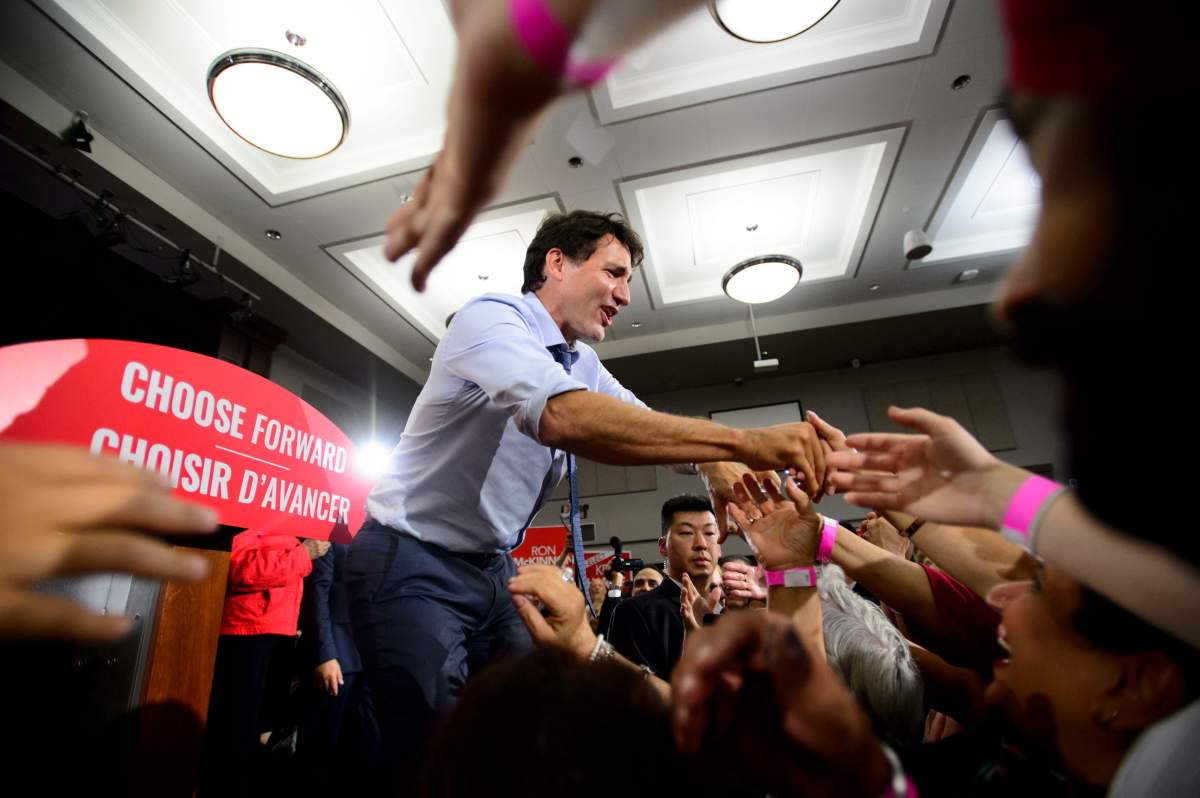The official campaign may be in its infancy, but over the summer Liberal politicians were already hard at work, roaming the country and making hundreds of spending announcements in Canadian ridings.

The Canadian Press tracked those events — grants for everything from dairy farmers to local festivals to companies run by women — totalling almost 1,000 announcements worth more than $10 billion in promised funding.
Those numbers are conservative. They do not include official government contracts (such as the multibillion-dollar award to General Dynamics in London, Ont.), pre-set transfers like the Gas Tax Fund, “re-announcements” of old funding or spending outside of Canada. Announcements for multiple recipients or ridings counted as a single commitment to the riding where the event took place, or where the bulk of the money is flowing.
Liberal ridings were the primary recipient of government largesse, comprising about 75 per cent of the total. Of those, the local MP was either on hand or the person who delivered the good news 80 per cent of the time.
WATCH: Federal Election 2019 – Trudeau makes announcement on supporting small businesses

Interestingly, roughly equal proportions of the spending was aimed at NDP and Conservative ridings — 15 per cent and 13 per cent, respectively.

Get breaking National news
Several key areas received a significant amount of attention from Liberal politicians over the summer, especially in Quebec. Lac-Saint-Jean, held by Richard Hebert, was a particular focus, as well as National Revenue Minister Diane Lebouthilier’s riding in Gaspesie.
Other notable points of focus across the country included Public Safety Minister Ralph Goodale in Regina, Rural Economic Development Minister Bernadette Jordan’s Nova Scotia riding, and the three territories. Jordan was the single most prolific announcer in the data.
Liberals made 330 spending commitments between Aug. 19-25 alone, totaling $2.85 billion. The week before that, Aug. 11-18, had 595 spending commitments worth a total of $4.9 billion. The spending commitments ranged from fixing bus stops in London, Ont. to building new dressing rooms at a hockey rink in western P.E.I.
A caveat: announcing a project in a certain riding doesn’t necessarily indicate the presence of so-called “pork-barrel” politics, where spending is distributed for political gain.
“There are, in certain areas, local needs” that simply need to be met, said Nelson Wiseman, a professor of political science at the University of Toronto. And it’s worth remembering that the Liberals won more than half of Canada’s 338 seats in the 2015 election, he added.
But it could well be that the government is responding to feedback from backbenchers hoping to better secure their re-election chances — a practice as old as time, experts say.
WATCH: Federal Election 2019 – Conservatives say if re-elected, Trudeau will increase ‘carbon tax’

“The last government was doing this as well, the government before that … it’s common,” Wiseman said.
The governing party does have more opportunity to plan for the campaign, thanks to the fact Canada now has fixed federal election dates — a move that was supposed to rob governments of the ability to rig the timing, but still provides advantages, said Genevieve Tellier, a political science professor at the University of Ottawa.
“From Day 1, they may think, ‘OK, this announcement we’ll do right away, this one we can do in four years,'” she said.
Whether such announcements actually have a political impact is another question.
The local announcements do often make the news, Wiseman noted, and can swing just enough voters to make a difference in very close ridings.
“Overall, if there’s a big national shift, that will have a much greater impact than these local announcements. But they don’t hurt your cause, they can only help,” he said.
WATCH: Liberal leader Justin Trudeau draws hundreds to Edmonton rally

Especially now that the election campaign has started in earnest, whether voters will remember a $200,000 — or even $2-million — announcement in July is unclear.
“There are very few levers that politicians have in raising their profile,” said Elly Alboim, a political communications specialist at Earnscliffe Strategy Group, “Spending is one of them…. (But) whether individual voters are as aware of government spending and give government credit for it, as politicians believe, is an open question.”
-With files from David Akin







Comments
Want to discuss? Please read our Commenting Policy first.